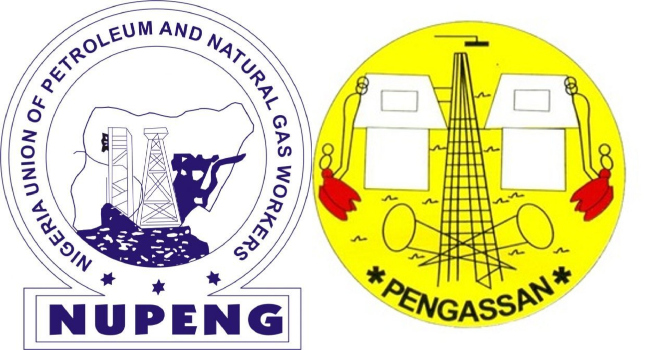Oil Workers Reject Alleged FG’s Plan to Sell Stakes in Joint Ventures

The Petroleum and Natural Gas Senior Staff Association of Nigeria (PENGASSAN) and the Nigeria Union of Petroleum and Natural Gas Workers (NUPENG) have strongly opposed an alleged plan by the Federal Government to sell part of its stakes in Joint Ventures (JVs) with international oil companies operating in the country.
The unions voiced their concerns at a joint press conference in Abuja on Tuesday, warning that the move would weaken Nigeria’s oil sector, compromise economic security, and undermine the ability of the Nigerian National Petroleum Company Limited (NNPCL) to fulfill its obligations.
The controversy follows President Bola Tinubu’s directive last month for a reassessment of NNPCL’s 30 per cent management fee and 30 per cent frontier exploration deduction under the Petroleum Industry Act (PIA).
The President had charged the Economic Management Team to optimise government savings, enforce fiscal discipline amid global financial pressures, and streamline deductions from the Federation Account.
But PENGASSAN President Festus Osifo and his NUPENG counterpart, Williams Akporeha, rejected suggestions that government stakes in JV assets could be reduced by up to 30–35 per cent.
Currently, the Federal Government holds between 55 and 60 per cent of such assets through NNPCL.
“The government wants to reduce its stake in these assets. In some cases, they are talking of selling up to 35 per cent. But we say no. You cannot mortgage the future of Nigerians for temporary gains,” Osifo said.
According to the unions, such a decision would bankrupt NNPCL, impair its ability to pay salaries and welfare packages, reduce its budgetary contributions, and weaken Nigeria’s position in the foreign exchange market.
They also accused the Ministry of Finance of seeking to edge out the Ministry of Petroleum from joint ownership of NNPCL.
They warned that proposed amendments to the PIA would strip the national oil company of its core role, frighten investors, and damage Nigeria’s policy credibility.
“The PIA was passed after years of struggle. Investors are just beginning to adapt to it. Now, the government wants to amend it again? That is a dangerous signal,” Akporeha argued. “Every serious oil-producing nation protects its national oil company. Here, we are doing the opposite, stripping ours of its strength.”
The union leaders cautioned that the proposals, if implemented, could hinder Nigeria’s ability to generate the revenue needed to finance its national budget. “This is a recipe for crisis, and we will resist it,” Osifo declared.









